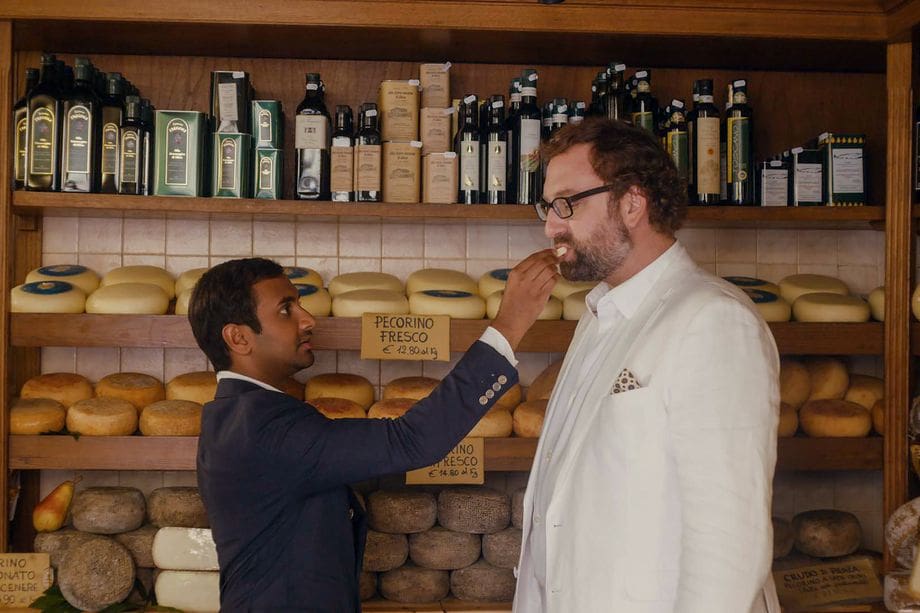
Master of None Season 2: A Great, Personal Comedy Returns
Sitcoms centered on fictionalized versions of famous comedians have made up a TV subgenre for ages. But, over the past few years, these shows have taken a more self-reflective, somber tone. Louie and Girls have gotten incredibly dark in the past, while shows like Better Things and Atlanta occasionally toe-the-line between drama and comedy. But, in the wake of these dramadies, Aziz Ansari’s Master of None has been somewhat of an outlier. It has the same down-to-earth realness that makes its peers so interesting and unique, but also feels fun and optimistic. When it gets serious, it’s more introspective and even inspiring. And, with its second season, Ansari has broadened his scope even more, to greater results and more honest truths.
For the uninitiated, Master of None follows the life of Dev, a struggling actor based in NY dealing with his parents, friends, and the confusing dating landscape of the 21st century. While each episode has a standalone plot, and typically explores a central theme, the first season casually followed the relationship between Dev and Rachel (SNL alum Noël Wells). When season 2 picks up, Dev has gone off to Italy with the hope of re-centering his life and finding out what he wants to do next. While the premiere particularly feels like a standalone episode – it’s filmed in black and white, and does not feature any of the other series regulars – it’s only a matter of time before the other characters we love return.
At the time of reviewing, I’ve only watched the first three episodes of the sophomore year, but they remain as strong and sweet as the first batch. The premiere is particularly unique, calling to mind classic Italian ad French New Wave cinema. The episode, which follows Dev as he celebrates his birthday by himself in Italy, is a quiet and, ultimately, romantic story, that skillfully packs a full film narrative into thirty minutes. It also features some gorgeous cinematography and a look at some truly incredible food. The second episode, which is also set in Italy, but returns the original format and is filmed in color, is also quite satisfying and offers a nice change and pace from the New York feel of the first season. It also reunites Dev with his best friend, Arnold (Eric Wareheim), and affectionately mocks dating apps before diving into some upsetting truths about relationships and breakups.
The best of the first set of episodes, however, is the third, in which Dev’s parents (played by Ansari’s real parents) make their welcome return. Much like the Emmy winning “Parents” episode from season 1, Season 2’s “Religion” explores the generational gap between Dev and his parents as they debate over whether or not he should be able to eat pork in front of his conservative Muslim relatives. Ansari deserves credit for exploring these relatable issues so openly, especially since he’s not afraid to make his own character come off as rude or ignorant. While the episode doesn’t take a firm stance on which character is “correct”, it puts both sides on an even playing field. And, while they may not be professional actors, both Shoukath and Fatima Ansari have a warm, lovable screen presence that will undoubtedly remind viewers of their own parents.
What makes Master of None so special in its first three episodes is that it manages to feel at home on the current television landscape, while also serving as a breath of fresh air. This is the Golden Age of TV: there is a lot of great content. But many comedies are dark, even downright depressing, and it’s hard to find a series that consistently leaves you feeling happy by the time it ends. Master of None easily fills that need: it’s hilarious, sweet and, for many millennials, relatable. But it won’t leave you with a bitter aftertaste or pondering social problems. And that’s something we should celebrate.
Overall rating: 10 out of 10
https://www.youtube.com/watch?v=tGE-Mw-Yjsk

